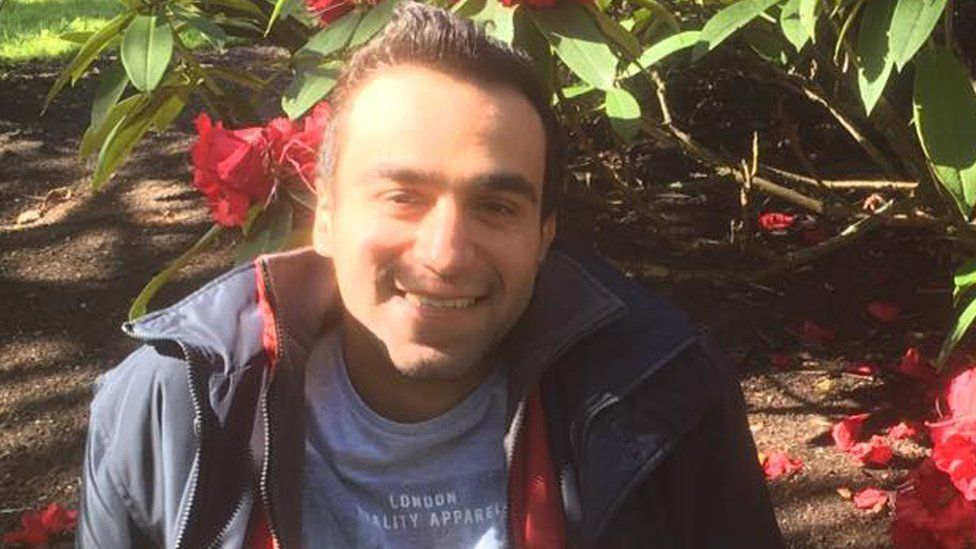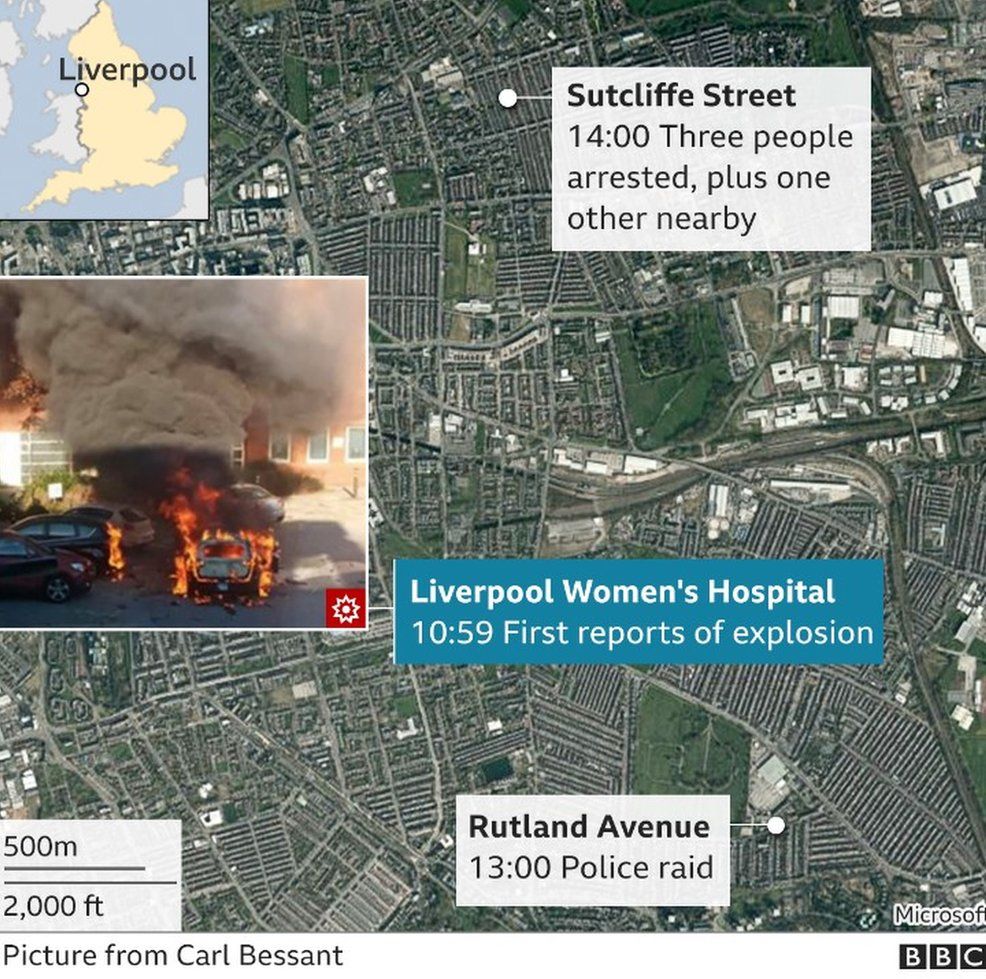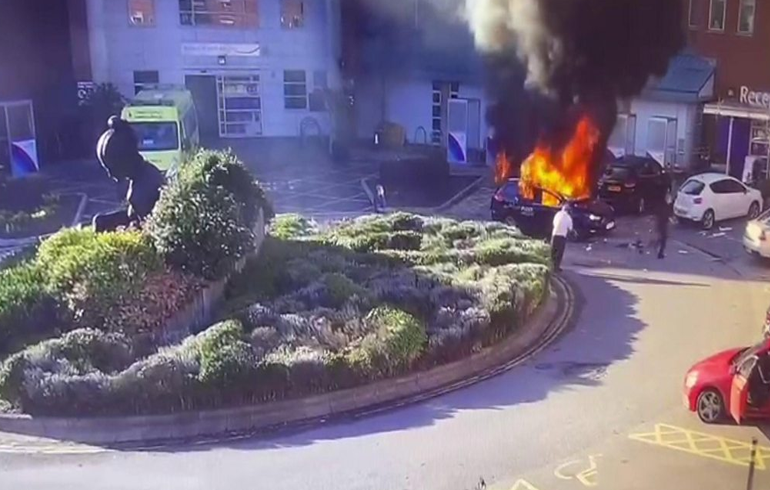Four men arrested under terrorism laws after a bomb exploded outside Liverpool Women’s Hospital on Remembrance Sunday have been released without charge.
It comes after police named Emad Al Swealmeen as the man who died when a homemade device blew up in the back of a taxi shortly before 11.00 GMT.
It is understood the 32-year-old suspect was an asylum seeker who converted to Christianity in 2017.
Police say “important evidence” has been found at an address he rented.

In an update on Monday evening, Assistant Chief Constable Russ Jackson, head of Counter Terrorism Policing North West, said the property at Rutland Avenue near Sefton Park, in the south-east of the city, was “becoming central to the investigation”.
This was the address where Al Swealmeen was picked up by the taxi before being driven to the maternity hospital.
The taxi’s driver, David Perry, escaped before his car caught fire and has since been discharged from hospital.
ACC Jackson said: “We have made significant progress since Sunday morning and have a much greater understanding of the component parts of the device, how they were obtained and how the parts are likely to have been assembled.”
But he said it could take weeks to establish how the incident was planned and prepared.
Four men were arrested in the Kensington area of Liverpool – three aged 21, 26 and 29, who were held on Sunday, and a 20-year-old man who was detained on Monday.
ACC Jackson said: “Following interviews with the arrested men, we are satisfied with the accounts they have provided and they have been released from police custody.”
Security minister Damian Hinds told BBC Breakfast: “There’s always the possibility that further links can be detected. People sometimes talk about lone wolves and so on – people are rarely totally alone because they talk to others and so on. We have to leave time and space for the police to do their investigation.”
A local couple, Elizabeth and Malcolm Hitchcott told ITV News Al Swealmeen briefly lived with them at their home after his conversion to Christianity.
Mr Hitchcott said Al Swealmeen, who was an asylum seeker from the Middle East, formally converted from Islam at a ceremony in Liverpool’s Anglican Cathedral. The cathedral, which was the scene of the city’s main Remembrance Day service on Sunday, is a short distance from Liverpool Women’s Hospital.
He said in the years before the attack Al Swealmeen had been sectioned under the Mental Health Act for about six months because of his behaviour with a knife.
Speaking to the BBC, Mrs Hitchcott said she was “just so sad” and “very shocked” by Sunday’s incident, adding: “We just loved him, he was a lovely guy.”
Bishop of Liverpool Paul Bayes told BBC Radio 4’s Today programme he had “no doubt” the Hitchcotts would feel numb.
He said: “So many people of all the different faiths try to reach out in the name of the common good, try to make themselves available for love, and when that’s taken advantage of, or when things happen which subsequently you can’t understand why that’s happened, that does shake you.”
Another address in Sutcliffe Street in the city, where officers believe Al Swealmeen previously lived, is also part of the investigation.
The UK terror threat level was raised from “substantial” to “severe” on Monday, meaning an attack is “highly likely”, because the explosion in Liverpool was the second incident in a month, following the death of Conservative MP Sir David Amess.
Deputy Assistant Commissioner Matt Twist, one of Counter Terrorism Policing’s senior national co-ordinators, said the change was a “precautionary measure and not based on any specific threat”.
BBC security correspondent Gordon Correra said the decision to declare what happened as a terrorist incident looks less to be based on a clear understanding of his ideology and more on his methodology, with the use of an improvised explosive device.

Source: BBC




















































